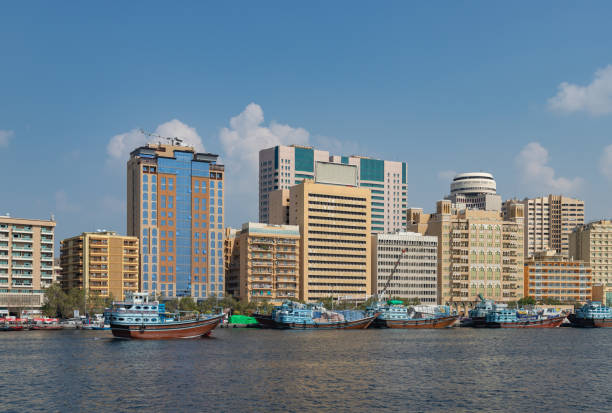Dubai’s property market is an attractive option for investors and individuals looking to purchase real estate. Whether you’re a seasoned investor or a first-time buyer, understanding the ins and outs of Dubai’s property landscape is crucial. This article will delve into the key aspects that anyone planning to buy property in Dubai must be aware of, from market trends to the buying process and legal requirements. By the end of this guide, you’ll have a comprehensive understanding of what it takes to make a successful real estate investment in Dubai.
Understanding Dubai’s Real Estate Market
Market Trends and Dynamics
The real estate market in Dubai is known for its rapid growth and dynamic nature. Over the past few years, the market has experienced fluctuations, but the long-term trend remains optimistic. Factors such as infrastructure developments, government policies, and foreign investment have a significant impact on market trends. Additionally, luxury properties like those in Taormina Village, known for their high-end amenities and prime locations, continue to draw interest. Predictions indicate a steady growth pattern with promising returns for investors.
Types of Properties
When considering buying property in Dubai, it’s essential to understand the different types available. There are two main categories: residential and commercial properties. Residential properties include apartments, villas, and townhouses, while commercial properties encompass offices and retail spaces. Another crucial distinction is between off-plan properties, which are still under development, and ready properties, which are available for immediate occupancy. Each type has its pros and cons, influencing your decision based on your needs and investment goals.
Legal Requirements and Regulations
Eligibility Criteria
Before purchasing property in Dubai, you need to be aware of the eligibility criteria. Both locals and expatriates can buy property in designated areas. However, there are specific rules for expats, such as the requirement to purchase in freehold areas. These areas include popular districts like Dubai Marina, Downtown Dubai, and Palm Jumeirah. Understanding these rules will help you navigate the legal landscape more smoothly.

Important Legal Documents
Several key legal documents are required to finalize a property purchase. The title deed is crucial as it serves as proof of ownership. A sales agreement outlines the terms of the transaction, while the No Objection Certificate (NOC) is needed to ensure that the developer has no objections to the sale. It’s advisable to engage a legal advisor to review these documents thoroughly. Below is a table summarizing these essential documents:
| Document | Description |
|---|---|
| Title Deed | Proof of property ownership |
| Sales Agreement | Outlines terms of the sale |
| No Objection Certificate (NOC) | Required from the developer to proceed with the sale |
Financial Considerations
Property Prices and Financing
Property prices in Dubai can vary significantly based on location, property type, and other factors. Generally, properties in high-demand areas like Palm Jumeirah and Downtown Dubai command higher prices. Financing options are available through various banks offering mortgage services. The standard down payment is around 25% for expatriates, and other initial costs include valuation fees, mortgage arrangement fees, and insurance. It’s vital to budget for these additional expenses to avoid any financial surprises.
Taxes and Fees
Buying property in Dubai comes with a few notable taxes and fees. The transfer fee, usually 4% of the property value, is one of the most significant costs. Registration fees are also required to officially register the property under your name. Additionally, there may be real estate agent fees if you enlist their services. Below is a list of potential costs:
Initial Costs:
- Down payment
- Transfer fee (4% of property value)
- Registration fee
- Valuation fee
- Mortgage arrangement fee (if applicable)
- Real estate agent fee (if applicable)
Choosing the Right Location
High-demand Areas
Dubai boasts several high-demand areas, each offering unique advantages. Downtown Dubai is known for its iconic Burj Khalifa and luxurious lifestyle options. Dubai Marina, with its waterfront views and vibrant nightlife, is another sought-after location. Palm Jumeirah stands out for its exclusive villas and world-class amenities. When choosing a location, consider factors like community, proximity to work and schools, and future growth potential.
Future Development Projects
Future development projects also play a crucial role in deciding where to buy property. Areas with planned infrastructure improvements often experience an increase in property value. Upcoming zones in Dubai include districts with ongoing projects that promise enhanced connectivity and amenities. Keeping an eye on these developments can provide opportunities for lucrative investments.
The Buying Process
Step-by-Step Guide
The process of buying property in Dubai is relatively straightforward when you know what steps to follow. Here’s a simplified guide:
- Property Search and Selection: Start by researching and visiting properties that meet your criteria.
- Making an Offer: Once you’ve found the right property, make an offer to the seller or developer.
- Negotiations: Negotiate the terms of the sale, including price and payment schedule.
- Finalizing the Purchase: Complete the paperwork, including signing the sales agreement and transferring the down payment.
- Registration: Register the property with the Dubai Land Department.
Working with Professionals
Engaging the right professionals can simplify the buying process and ensure a smooth transaction. Real estate agents can help you find the best properties and negotiate deals. Legal advisors are essential for reviewing contracts and ensuring compliance with legal requirements. Additionally, hiring inspectors and appraisers can help determine the property’s condition and fair market value.

Conclusion
In conclusion, buying property in Dubai requires a good understanding of the market, legal regulations, and financial considerations. By familiarizing yourself with the various types of properties, eligibility criteria, and key legal documents, you can make informed decisions. Choosing the right location and engaging professionals can further enhance your investment experience. Whether you’re looking for a luxury home in Taormina Village or a commercial space in the city’s business district, Dubai offers numerous opportunities for property buyers.
Frequently Asked Questions
1. Can foreigners buy property in Dubai?
Yes, foreigners can buy property in designated freehold areas in Dubai.
2. What initial costs should I budget for when buying property in Dubai?
Initial costs include the down payment, transfer fees, registration fees, and potentially real estate agent fees.
3. Is it better to buy off-plan or ready properties in Dubai?
Both have their advantages; off-plan properties can be cheaper but take time to complete, while ready properties can be moved into immediately or rented out.
4. Do I need a lawyer to buy property in Dubai?
While not mandatory, it is highly advisable to have legal representation to ensure all documents and processes are handled correctly.
5. Are there any ongoing taxes for property owners in Dubai?
Dubai does not have ongoing property taxes, but owners will need to pay maintenance fees and other service charges.
